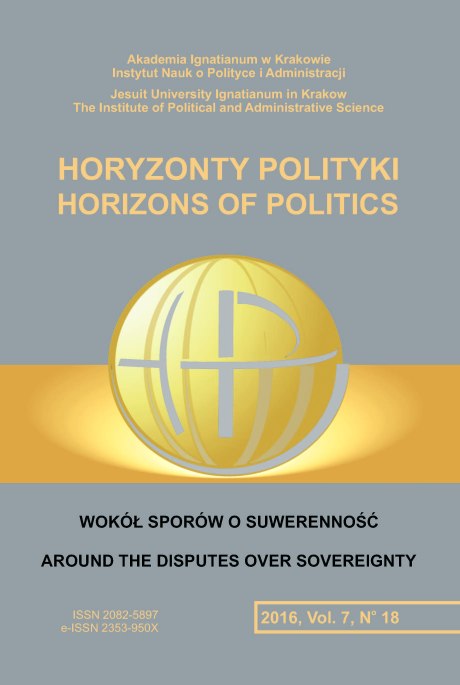Jean-Jacques Rousseau i James Madison. Dwa modele obywatelstwa w tradycji doktryny suwerenności ludu
Jean-Jacques Rousseau and James Madison. Two Models of Citizenship in the Tradition of Popular Sovereignty
Author(s): Rafał LisSubject(s): Politics / Political Sciences, Political Philosophy, Social Philosophy, Civil Society, Governance, Early Modern Philosophy
Published by: Uniwersytet Ignatianum w Krakowie
Keywords: Sovereignty;Popular Sovereignty;the People;Citizenship;
Summary/Abstract: Research objective:The aim of the article is to analyse the thought of J.J. Rousseau and J. Madison (counted among the most prominent theorists of popular or republican government in the Eighteenth century), with a special emphasis on the issue of citizenry.The research problem and methods: The author focuses on the relationship between the accounts of the people and the associated concepts of citizenship. He wonders whether they can provide us with any coherent vision of the citizens’ role in government or – rather – reveal serious discrepancies within a broader doctrinal tradition. To that purpose the author refers to main works of these authors, supporting his conclusions by critical references to secondary sources, dealing especially with their views on popular sovereignty.The process of argumentation: The article begins with the analysis of Rousseau’s thought, turning then to that of Madison. It finishes with a sort of summary, which gives an opportunity to emphasise the main similarities and – above all – differences between their arguments.Research results: The analysis of the both authors’ thought indicates that there were at least two different views on citizenship within the Eighteenth century tradition of popular sovereignty. It points out that Rousseau viewed the common citizenry in a very active role of a sovereign, insisting on frequent assemblies of the people as a necessary means of identifying the general will. In that respect, Madison kept warning against a more direct or locally-oriented citizens’ activity, looking for such electoral and constitutional devices of majority rule that would more appropriately serve the public interest, securing the rights of minorities as well.Conclusions, innovations, recommendations:The far-reaching conclusion is that the two depicted models of citizenship reveal in fact considerably broad possibilities of defining popular sovereignty and – more specifically – the constitutional function of civic activity. The latter will be ultimately determined by assumptions of the public sphere and evaluations of the moral and political capacities of the very citizens.
Journal: Horyzonty Polityki
- Issue Year: 7/2016
- Issue No: 18
- Page Range: 73-90
- Page Count: 18
- Language: Polish

